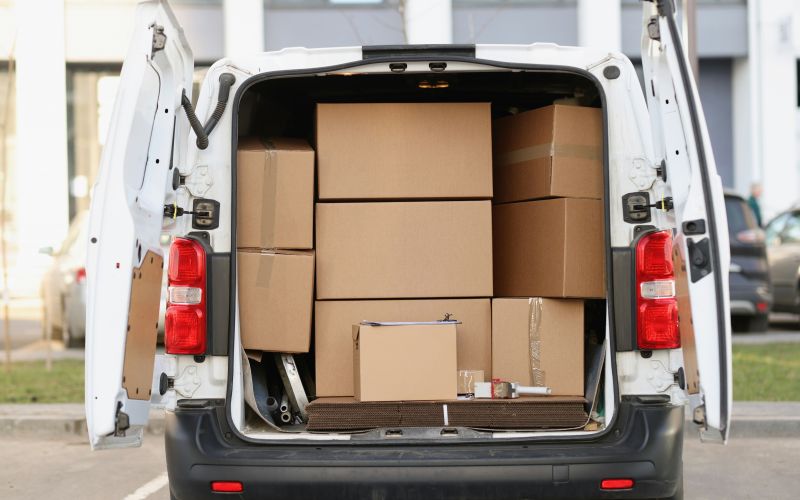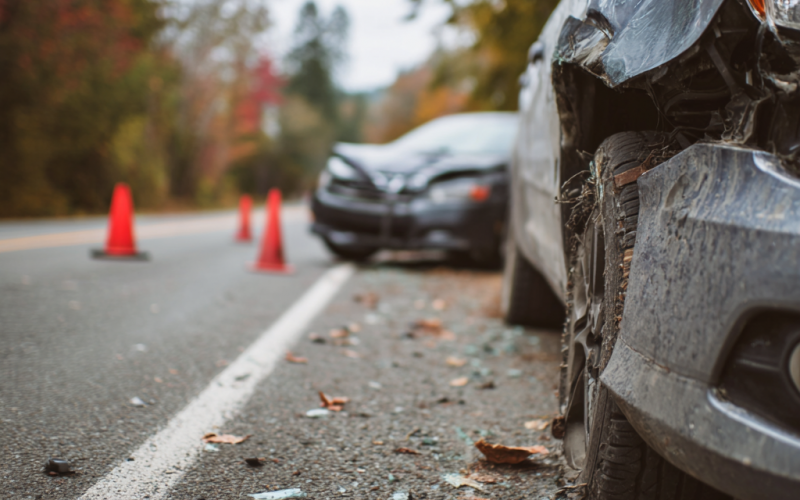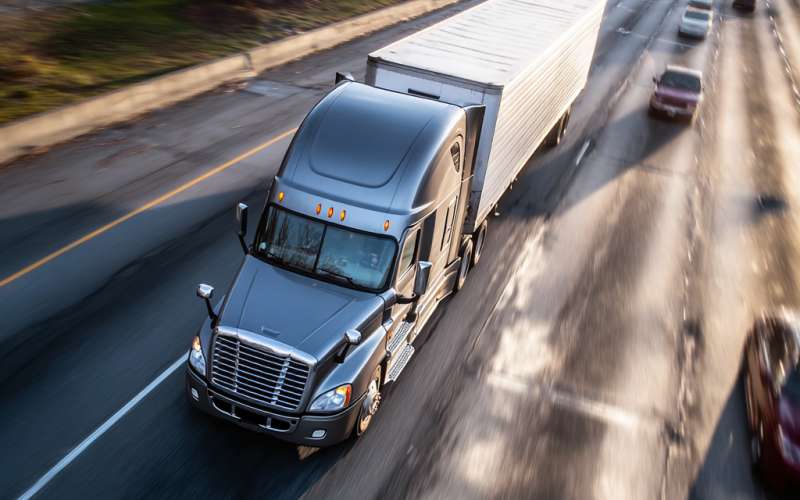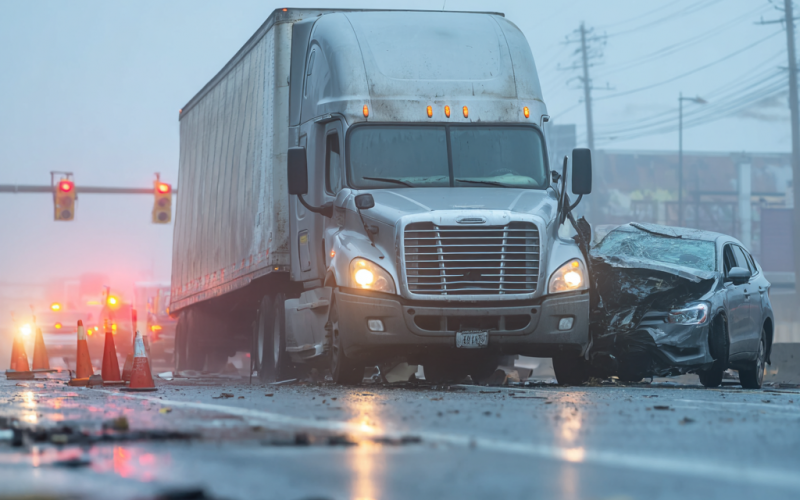Truck Accident Lawsuit: How Liability Works
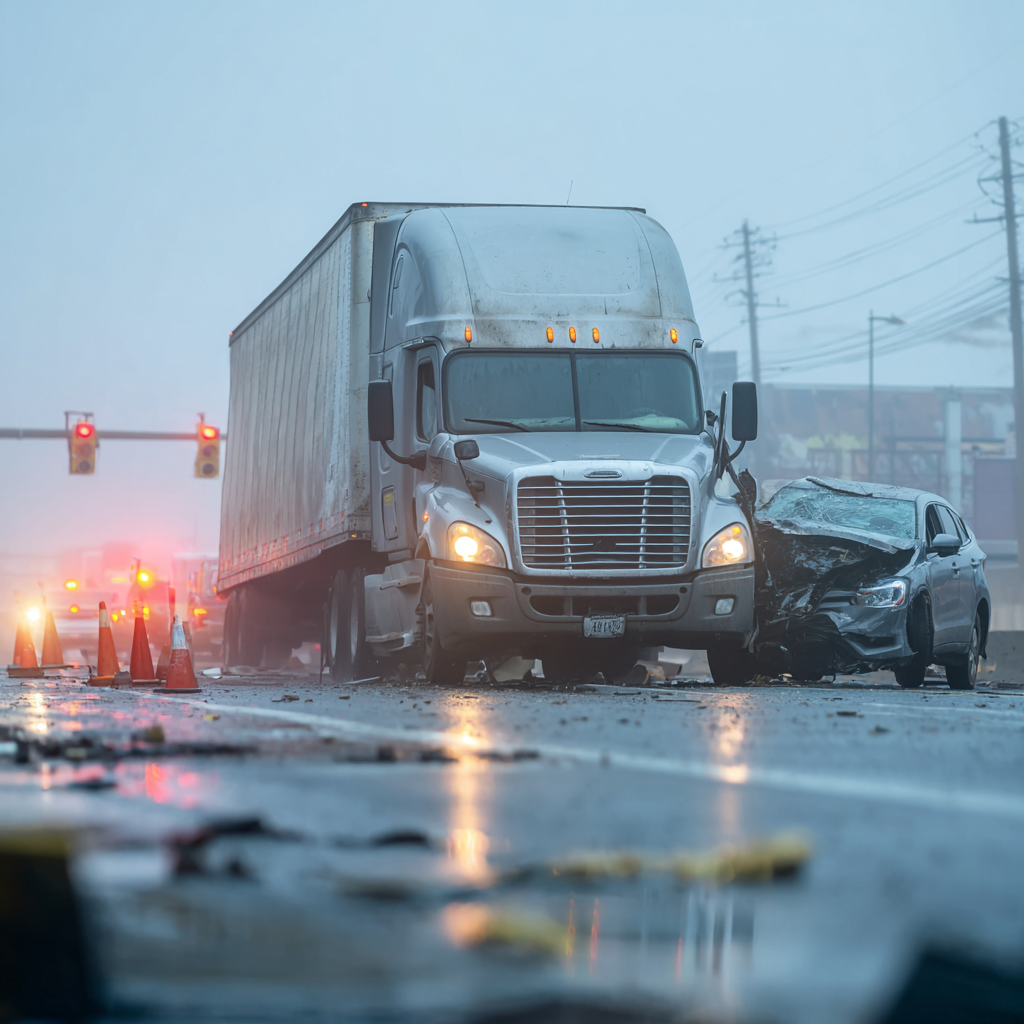


Key Takeaways
- A truck accident lawsuit may involve multiple liable parties, including the driver, employer, brokers, shippers, or even manufacturers.
- South Carolina’s modified comparative negligence law allows recovery of damages as long as you’re less than 51% at fault.
- Truck accident cases are complex, often involving multiple insurers and legal doctrines like vicarious liability.
After a serious crash on I-85, I-385, or elsewhere in Greenville, you need more than luck on your side. The Greenville truck accident lawyers at HawkLaw, P.A. are ready to fight for your rights and pursue the maximum compensation you deserve.
Who Is Liable in a Greenville Trucking Accident? Driver, Employer, or Manufacturer?
If you’ve been hit by a commercial truck, your injuries are likely catastrophic, creating massive medical bills. Couple this with the additional headache of dealing with multiple parties (like drivers, owners/operators, and shippers) and their insurers, and it’s easy to see why truck accidents are far more involved than a standard car accident case. That’s why many people turn to a truck accident lawsuit to hold the right parties accountable.
At HawkLaw, P.A., our team knows how to fight for victims of serious truck accidents in Greenville and across South Carolina. If you need a Greenville truck accident lawyer, we’re here to help, whether your crash happened on congested I-85, I-385, or even US-276.
But here’s the tricky part: figuring out who is actually liable in a trucking accident. It isn’t always just the driver. In fact, multiple parties can share responsibility.
Trucker Liability in an a Tractor-Trailer Crash
Sometimes, the driver is the most obvious person at fault. A driver may be held personally liable in a truck accident lawsuit if their own negligence directly caused the crash. Examples include:
- Reckless driving, such as speeding, tailgating, or weaving through lanes
- Impaired driving, including the use of alcohol, drugs, or medications that affect judgment
- Distracted driving, including using a cell phone, eating, drinking, or even daydreaming
Even when a trucker appears to be at fault, their personal insurance coverage may not come close to covering the damages. That’s one reason why your attorney may look for additional liable parties.
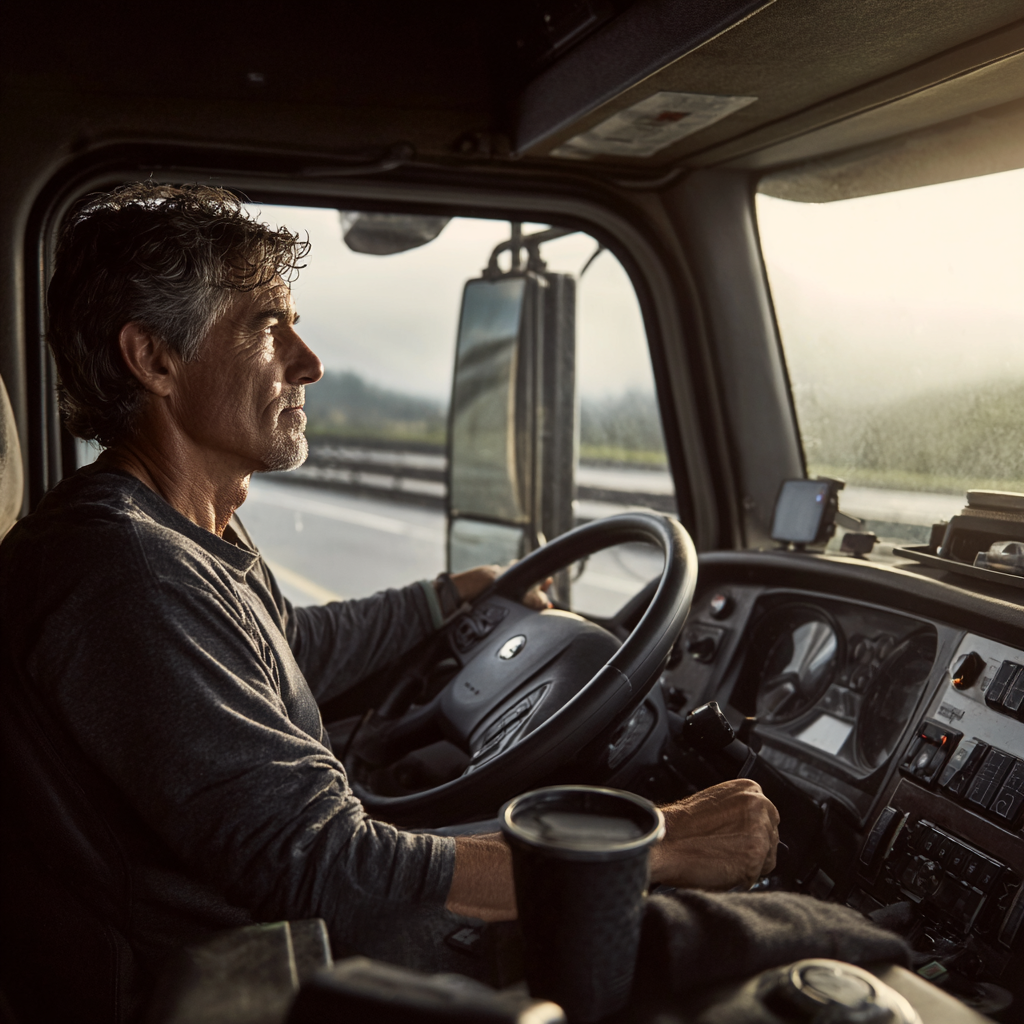
Employer Liability in Commercial Truck Accidents
In many cases, the trucking company itself ends up on the hook. This is because of legal doctrines that hold employers responsible for their employees’ actions:
- Vicarious liability. If the driver was acting within the scope of employment (like making a delivery), the company can be held liable.
- Respondeat superior. This term is Latin for “let the master answer.” This doctrine is the backbone of employer liability and essentially says that if the employee was acting in the scope of their employment and for the benefit of the employer, the employer must be held liable for damages.
- Negligent hiring or retention. If a company knowingly hired or kept a driver with a history of unsafe behavior, it can be sued directly.
In short, if a trucker was working when the crash happened, their employer usually shares (or bears) responsibility.
What Happens When the Truck Driver Is Hurt?
Truck drivers are often victims, too. If the crash injured the driver while they were working, their first line of compensation is usually through workers’ compensation benefits. Depending on the circumstances, though, they might also have a viable personal injury claim.
Third-Party Liability in a Truck Accident Claim
Not every truck crash comes down to just the driver and employer. Other companies and agencies may also share blame.
Manufacturer Liability
If the truck’s brakes fail, the tires blow out, or another mechanical defect contributes to the crash, the manufacturer could face liability under product liability law. These cases involve proving that the part was defective in design or that there was a mistake during manufacturing.
Broker Liability
Sometimes, responsibility lies with the broker or the company that connects shippers with carriers. If the broker chose an unsafe or unqualified trucking company, they may be held accountable.
Shipper and Load Crew Liability
Improperly loaded or unsecured cargo is a major cause of trucking accidents. If the load shifts or spills, the results can be catastrophic. Both the shipper and the loading crew can be sued if their negligence caused the crash.
Truck Maintenance Company Liability
Trucking companies often outsource vehicle maintenance. If the contractor fails to properly inspect, repair, or service the truck, they could be liable. Even when a company handles its own repairs, skipped inspections or sloppy work can create legal exposure.
Government Liability
Poorly maintained roads, missing signage, or unsafe highway design can also contribute to accidents. Suing a government entity may be more challenging, these claims can lead to systemic changes that benefit everyone. Even when they do not, they still hold a negligent party accountable.
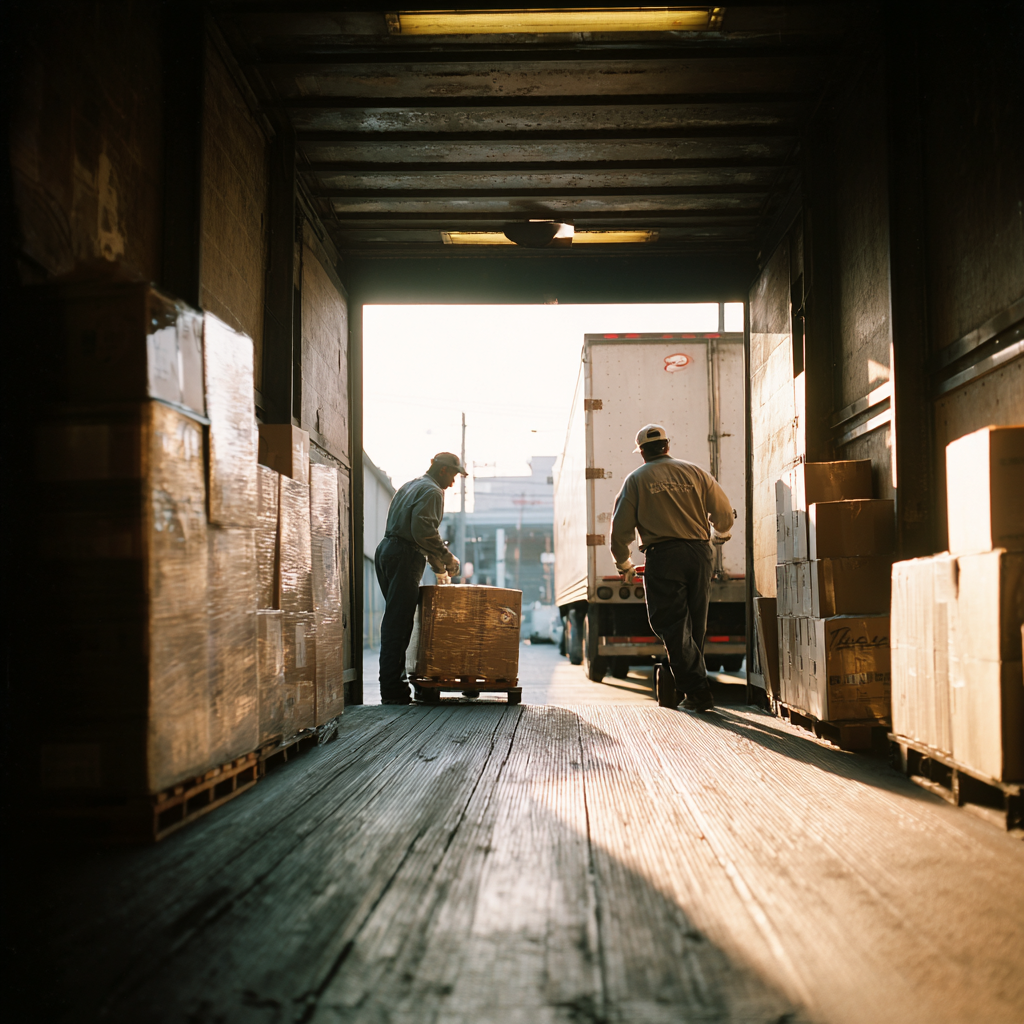
Truck Accident Lawsuits When Multiple Parties Share Blame
Many truck accident cases involve multiple defendants. For example, a fatigued truck driver may cause a crash, but the company also pushed them past their hours, and the maintenance crew failed to fix worn brakes. In that situation, several insurers may be involved, each fighting to minimize its share of the payout.
But what happens when you’re one of those at-fault parties? In South Carolina, we follow a modified comparative negligence doctrine. If you are found partially at fault for the crash, you can still make a claim for damages. However, your compensation may be reduced by your percentage of fault.
Wrongful Death in a Trucking Accident Lawsuit
Tragically, many trucking accidents are fatal. If a loved one dies either at the scene or later due to accident-related injuries, their family may be able to file a wrongful death lawsuit.
In South Carolina, these claims can typically be brought by the personal representative of the estate, on behalf of surviving family members. Damages may include medical expenses, funeral costs, lost income, and the loss of companionship. While no amount of money replaces a loved one, these claims help provide financial stability and hold negligent parties accountable.
Why You Want a Greenville Truck Accident Lawyer From HawkLaw, P.A.
Truck accident cases are high-stakes battles. The trucking companies and insurers will have aggressive legal teams to protect their interests, and you should too. Here’s why working with HawkLaw, P.A. makes a difference:
- Local experience: We know Greenville’s roads, courts, and judges.
- Proven record: Our firm has successfully handled complex injury lawsuits involving multiple liable parties.*
- 24/7 availability: We’re here whenever you need us, day or night.
- Strong advocacy: We don’t shy away from fighting powerful trucking companies and insurers.
- Constant communication: Our digital case management system keeps clients updated in real time, so you’re always in the know about your case.
At HawkLaw, P.A., we fight to win. If you or a loved one has been injured in a truck accident, reach out today for a free consultation.*
Don’t Delay; Call HawkLaw for Help With a Truck Accident Claim
HawkLaw, P.A. fights for injury victims in Greenville and throughout South Carolina. We don’t back down and we won’t settle for less. Please fill out our contact form to schedule a free consultation* with a member of our team. We serve clients in Anderson*, Greenville, Spartanburg, Charleston, and Columbia.
*Our Anderson office is by appointment only. Cases are largely handled out of our Greenville office.
John D. Hawkins
John Hawkins is the Founder and CEO of HawkLaw He has been licensed to practice law in South Carolina since his graduation with honors in 1994 from the University of South Carolina School of Law, where he was on the Law Review and Order of Wig and Robe.
-
$3,000,000*
Trucking Accident Settlement
-
$1,005,000*
Car Accident Settlement
-
$575,000*
Personal Injury Settlement
"*" indicates required fields






